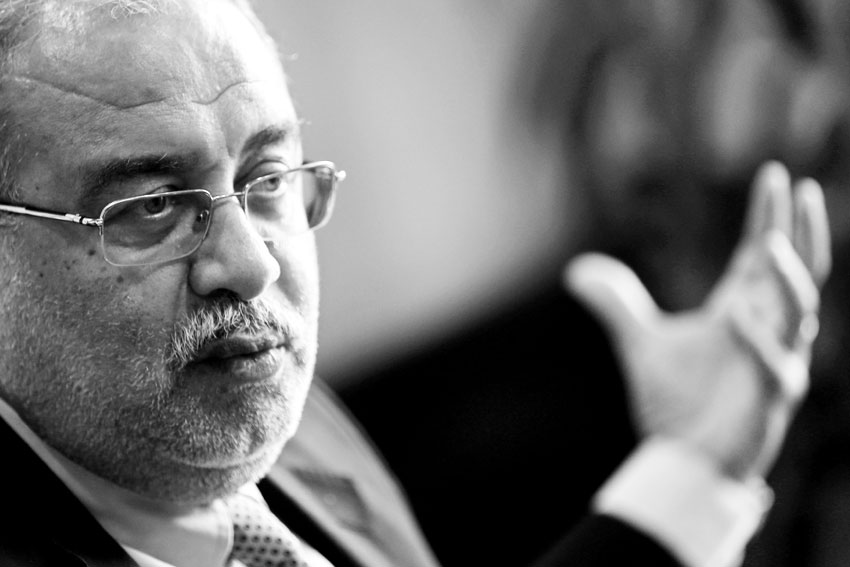Reforms undertaken by President El Sisi’s government have restored Egypt’s position as a world-class investment destination

Over the past 18 months, President Abdel Fattah El Sisi has embarked on a bold reforms programme designed to revitalise the country’s economy. Now, with over £130billion of new deals secured at the first Egypt Economic Development Conference (EEDC), it seems that Mr El Sisi’s reforms are starting to take effect.
As well as reforming a notoriously bureaucratic and cumbersome economic system, the government has been doing all it can to attract foreign investors – acutely aware that it needs foreign capital to tackle its deficit and debt. The new investment law presented a few months ago – just prior to the EEDC – goes a long way towards achieving this.
Egypt’s cabinet approved the long-awaited legislation designed to protect deals from legal disputes, bureaucracy and changes in government. “If it hadn’t been for this law, there would be no Sharm El-Sheikh conference,” said deputy head of the Egyptian Association for Financing and Investment, Mohsen Adel.
The government held discussions with investors, an industry association, law advisors and members of civil society when drawing up the legislation.
Up until now, an entrepreneur had to obtain 85 different permits in order to set up a company, a process that could last up to five years. Now, they will be able to manage all the paperwork through a one-stop agency. Additionally, the law provides guarantees for deals signed with governments and allows for incentives to facilitate the funding of labour-intensive projects.
One of the other key facets of the investment law is the imposition of punishments on companies and the guilty employee. Under the previous system, top executives were often made responsible for violations committed by staffers.
President El Sisi’s wide reaching reform programme doesn’t end there though. For example, another key revision came in August this year when the government passed a new Civil Service Law to stabilise the share of public salaries in the state budget.
The reform sets forth an ambitious framework to quell state bureaucracy by developing a more efficient approach to human resources, including the transparent announcement of vacant positions and standardised testing to fill them.
It also organises a system of voluntary early retirement, introduces significant changes to pay in the state sector, extends longer maternity leave to new parents and establishes a new system for assessing employee performance to facilitate career advancement for those who excel.
The government also took steps in February to address the economic burden created by the country’s unsustainable food and energy subsidies. “The Egyptian government has set a comprehensive gradual five-year plan for energy subsidies reform,” explains Egypt’s Prime Minister Sherif Ismail.
“The main purpose of the energy subsidies reform is to enable the State to direct more investments towards vital services highly required by citizens – such as health, education and transport projects – aiming at raising the overall standard of living of the Egyptian population.”
Since the 2011 revolution, spending on subsidies has represented over a quarter of annual government expenditure – more than Egypt spends on health and education combined. In July last year, the government allowed energy bills to increase by as much as 80 per cent – and intends to allow prices to continue rising by about 20 per cent a year until 2018.
President El Sisi is also trialling a new programme where people are issued plastic ‘smart cards’ to reduce government spending on food subsidies. Families can buy five loaves of bread per family member each day. Under the plan, bakers are also paid for the loaves that they sell, rather than sold subsidised flour – making it harder to deal on the black market. While there’s still a way to go before the cards are rolled out countrywide, success so far marks an important achievement for Mr El Sisi.
Judging by the success of the recent EEDC, investors, politicians and business leaders have all taken note of the president’s rapid success in transforming the country. The conference in March was attended by high-ranking officials from around the world – including US Secretary of State, John Kerry; Italian Prime Minister Matteo Renzi and British Foreign Secretary, Philip Hammond.
“It is a solid indication of the success of the government’s policies in general, and the Ministry of Petroleum in particular, which was able to attract new investments contributing to natural gas supply increase for the domestic market during the coming period,” says Mr Ismail.
“Egypt inked several agreements which reflect the willingness of the world’s major companies to inflow new investments in Egypt.”
0 COMMENTS